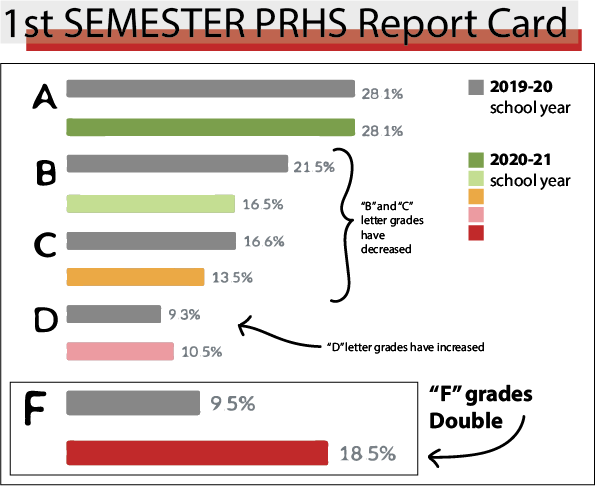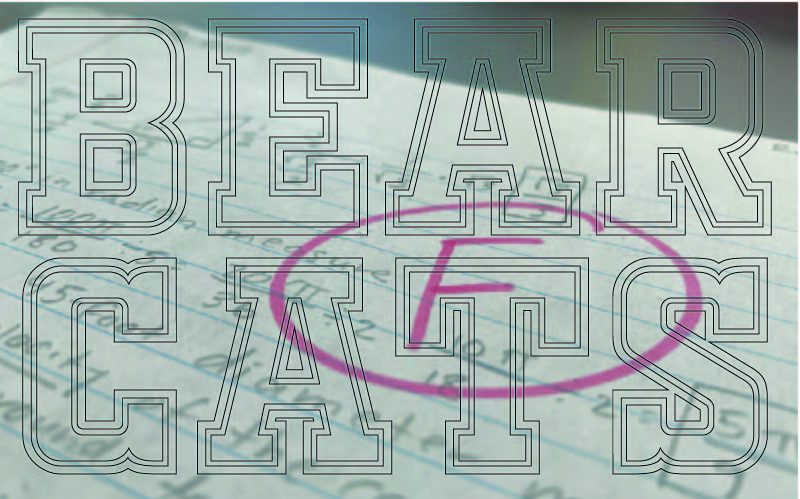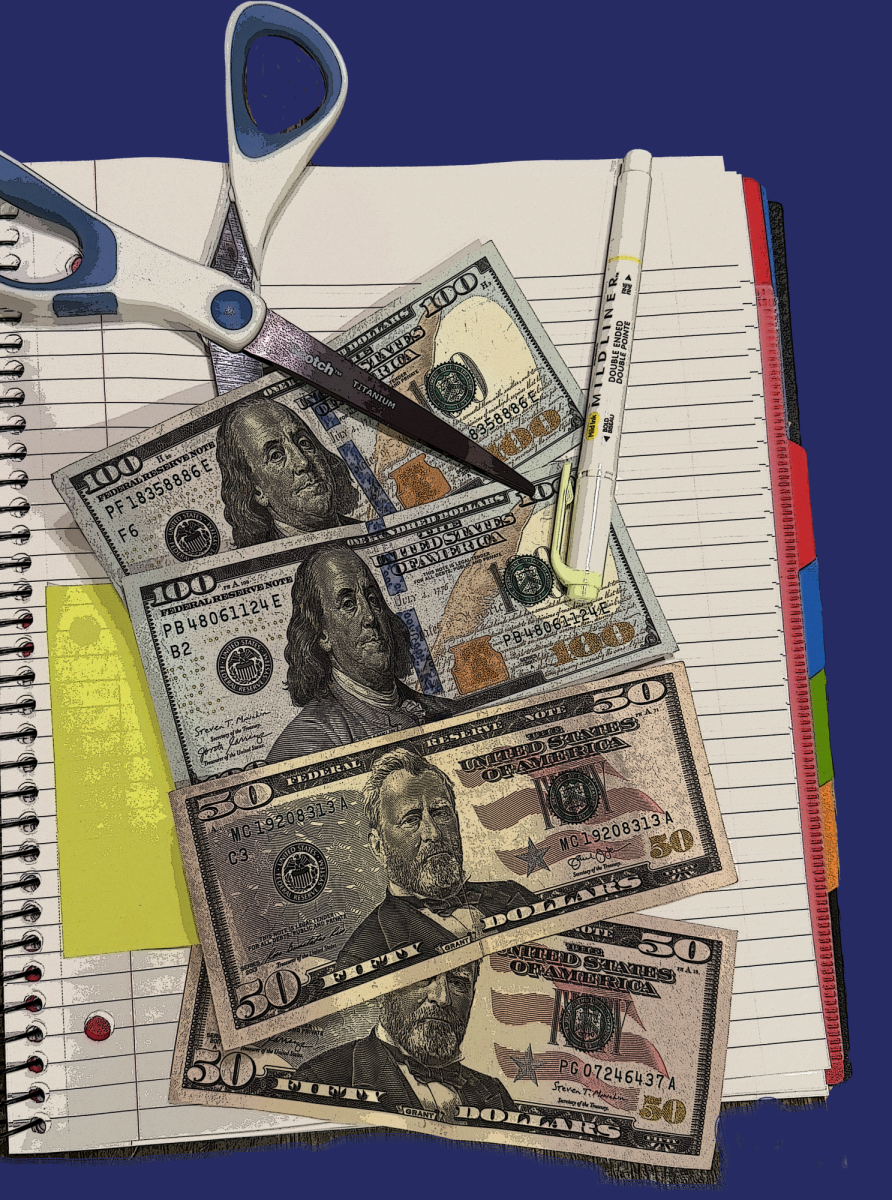No change in F grades that doubled after release of 1st semester report cards.
With the end of the first semester of the 2020-21 school year, and release of the 1st Semester Report Cards on Dec. 18, 2020, students, teachers and parents discovered an unusually high number of “F” grades in their report cards. “F” grades have almost doubled compared to last school year’s 1st Semester Report Card. This semester, 18.5% of all letter grades are “F’s” (this is a 9 percent increase since last school year).

This increase in failing classes has created a large concern for students, parents, and teachers. Principal Anthony Overton has two main concerns regarding the circumstance: one, he is worried about the impact of failing courses for each individual student on their path to college, career, and community readiness, as well as a students’ ability to reach their goals in these areas, and secondly, he is worried about the impact on the course of study PRHS will be able to continue to offer.
“Our robust elective or optional coursework could be affected as students will need to retake required classes, limiting the number of opportunities to take these elective or optional courses. The school’s master schedule is a delicate balance of meeting the needs of our students and this (number of failing marks) will have a ripple effect across the entire system,” Overton stated.
The “F” grades trend was first noted after the release of PRHS’ 1st Quarter Progress Report in October, where students’ “F” grades were also double the amount of the year before (click for more information).
Students who have failed a required class for graduation must retake the class(es) before the end of their senior year, in order to graduate. Students are able to make up these failed courses by attending summer school, or taking advantage of the Edgenuity program (an online alternative to in-person school).
“We have already increased Credit Recovery opportunities for students this semester utilizing the Edgenuity program. Summer School is currently being designed and will include a significant increase in budget and staffing to provide more opportunities for students to make up credits,” Overton said.
Due to the increased number of failed classes, PRHS will be equipped with more man power to handle increased summer school attendance.

“Our summer school structure is definitely prepared for increased participation — our only concern would be a sufficient budget for enough teachers, but I’m feeling optimistic about this.” Vice Principal Micheal Godsey said.
The format of summer school is still unknown at this time, but Overton explains that it will most likely include at minimum a combination of online Edgenuity programs, distance learning, and small in-person cohorts, and administration is working to bring as many students on campus for support, based on the updated guidelines/restrictions as June approaches.
“Beyond the school’s structure, however, many people are more concerned about the students,” Godsey stated. “Are the students who failed a class during distance learning in the spring going to do any better with distance learning in the summer?”
 In a survey of 286 students, 56.5 percent indicated that their grades were being negatively affected by Distance Learning. Sophomore Gwenyth Lemon explained that it’s easy to not pay attention in class when you are hiding behind a computer screen.
In a survey of 286 students, 56.5 percent indicated that their grades were being negatively affected by Distance Learning. Sophomore Gwenyth Lemon explained that it’s easy to not pay attention in class when you are hiding behind a computer screen.
“What I dislike the most about distance learning is that in-class time doesn’t feel as ‘present’ as it would in school. It is also easier to kind of ignore work or a class through a screen when there is nothing to back up the fact if you’re paying attention or not,” Lemon said.
Freshman Zoe LaPraim was concerned her preference of learning was being affected by the online schooling. “I am a very visual learner, so I feel like the fact that I couldn’t be in-person learning really affected me,” she said.
Many students also struggle with finding motivation while there are so many distractions at home.
“I have a hard time paying attention and finding motivation,” said freshman Violet Nowland.
“I can’t stay focused enough to learn the info so I end up not doing the homework because I don’t know how to do it,” said sophomore Brian Rowins.
Junior Reese Kobayashi says “it takes a toll on [her] mentality.” She explains she loses interest in activities and she “gets bored while [she’s] in school.”
Though the majority of students feel the weight of distance learning tugging on their grades, some students benefit from the freedoms found with learning from home.
“I like having the freedom to complete assignments on my own time. Assignments are typically due at midnight instead of the end of class, which gives me more time to do other things,” said junior Maily Nguyen.
“I love going at my own pace. I love not having to listen to other students or teachers. I love being in my own space and going ahead,” said freshman Destiny Massey.

The number of absences from tutorial classes was also at an alarming rate after the release of the first progress report. Tutorial classes are worth 1.25 credits, and students who do not pass tutorial may not be on track to graduate with the required 235 credits by the end of senior year. However, attendance in tutorial classes has improved since the first quarter, due to a schedule change. In the first quarter, students had tutorial classes at irregular assigned times throughout the week, which made it difficult for students to attend. Now the tutorial class is embedded in the Monday bell schedule between 2nd and 3rd period at 9:35 a.m.
“Attendance increased in the second quarter, and many students said they enjoyed this helpful experience. Since it was an easy way to connect with a teacher and other students, I’m a little disappointed that attendance wasn’t perfect, but I’m a bit of an idealist like that,” said Godsey.
When trying to explain a particular reason why students’ grades have been greatly affected by the new change in learning, Overton admits, “it is hard to pinpoint one particular reason,” as to why so many students are failing more classes this last semester, because, “everyone’s situation is unique.” Overton thinks, “we all need to ask ourselves what was the greatest challenge we each encountered and how are we going to work to address it this semester.”
“We all learned a lot from the first semester and since everything resets in the second semester, I hope we can take what we learned and do better this semester,” Overton said. “As for next year, I am hoping that we have everyone back on campus with a newfound appreciation for what our school offers for the students of Paso Robles.”
Godsey is also very optimistic, “there’s reason to hope that we’ll get going with an in-person hybrid schedule soon, and I can’t wait. I anticipate that there will be a surge of positivity and excitement upon our return, whenever it is,” he said. “I just keep thinking about that time it was so smoky for a week last summer, and then suddenly the sky was blue and the air was clean, and it just felt so good to breathe and appreciate oxygen. I think it’s going to be like that, but twenty times better.”







